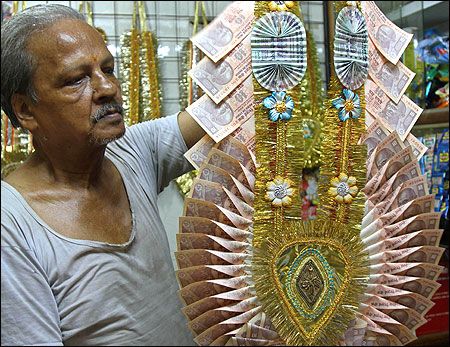The next revision will make the rates similar to those of bank FDs.
 The revision of interest rates on small savings schemes would make them unattractive to small investors in the current interest rate scenario.
The revision of interest rates on small savings schemes would make them unattractive to small investors in the current interest rate scenario.
Along with cutting the interest rates on short-term savings instruments by 0.25 per cent, the government has also made them market-linked, which will be revised every quarter.
The labour ministry, on the other hand, raised the interest rate on employees’ provident fund (EPF) by a meagre five basis points to 8.8 per cent.
Instruments that are now linked to government securities (G-Secs) include one, two and three-year post office term deposits, Kisan Vikas Patra (KVP), and five-year recurring deposit (RD).
Long-term instruments that are left untouched at present include Monthly Investment Scheme, Public Provident Fund (PPF), Senior Citizen Savings Scheme, five-year National Savings Certificate (NSC), and Sukanya Samriddhi Accounts.
The finance ministry also said the interest rate on NSC and KVP would be compounded once a year rather than twice, which is the current practice.
The move comes after the Reserve Bank of India asked the government to cut interest rates on small saving schemes as investors preferred them over bank fixed deposit (FD) due to higher interest rates.
“Small investors had the arbitrage opportunity earlier. The interest rates on national savings schemes are announced once a year. When banks reduced FD rates, the investors could lock their money in government saving schemes that offered higher returns,” says Arnav Pandya, a certified financial planner. The converse is also true.
When rates rise, investors flock to bank FDs, as they start paying higher interest rates sooner than small saving schemes.
According to Pandya, the interest rates on the national saving schemes, which are nearly one per cent higher than bank FDs, will start offering returns similar to FDs in the next revision considering the one-year and two-year G-Secs are trading at 7.3 per cent now.
“The government can come up with revised rates in March,” Pandya says.
At present, the fixed deposit rates for State Bank of India (SBI) is 7.25 per cent on deposits ranging from one year to 445 days and 7.5 per cent between 445 days and three years.
Interest rates on one, two and three-year deposits of post office, KVP, and five-year RD are 8.4 per cent. After the 25 basis points cut, these will be 8.15 per cent.
For example, if a person invests Rs 1 lakh in an SBI FD for two years. By the end of the tenure, he will get Rs 1,15,563.
The two-year post office deposit at present fetches Rs 1,17,506, or Rs 1,943 more. After the rate revision, the person will only make Rs 1,401 more than the SBI FD.

In KVP, the money doubles in 100 months years. After the revision of rates, the investor will need to wait 104 months to double the investment.
If the interest rates fall to 7.5 per cent, it will take 114 months for the money to double.
The government’s move to shift from compounding biannually to once-a-year on certain instruments can also impact your savings.
Take five-year National Savings Certificate as an example. The interest will remain at 8.5 per cent.
However, if a person invests Rs 1 lakh, the difference in compounding means he will get Rs 1,256 lesser than what he would get at present.
Raising PPF rates means the investor will make mere Rs 75 more this year on investing Rs 1.5 lakh – the maximum permissible limit.
Gaurav Mashruwala, a certified financial planner, says while a person in the lowest tax bracket will suffer at present, this move was expected.
He also points out that wealthy people patronise these instruments more than retail investors. “This means, taxpayers are subsidising the returns for the wealthy as these schemes are run by the government,” says Mashruwala.
He advises that investors should lock-in their investments right now before the rate changes.












 © 2025
© 2025